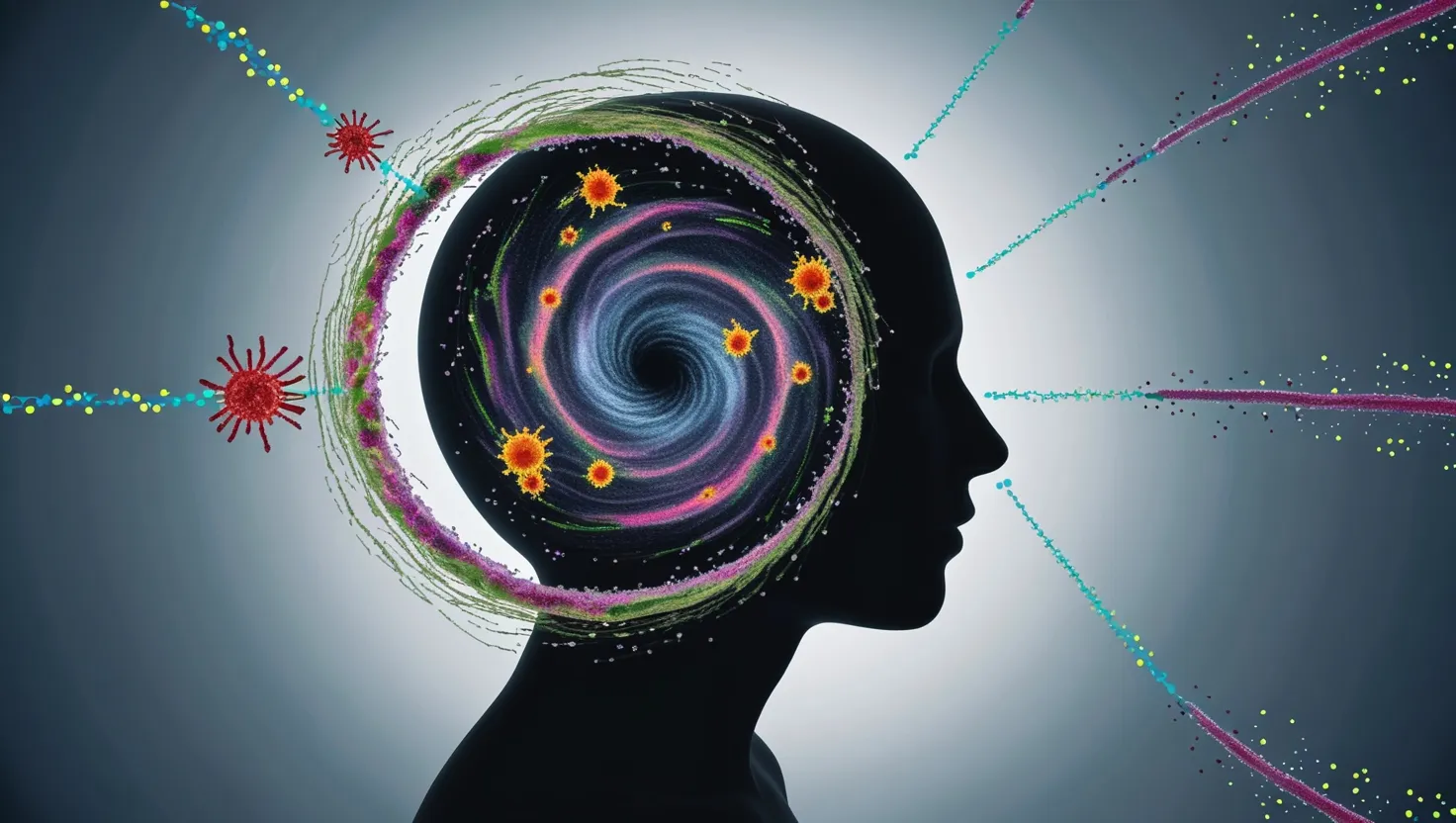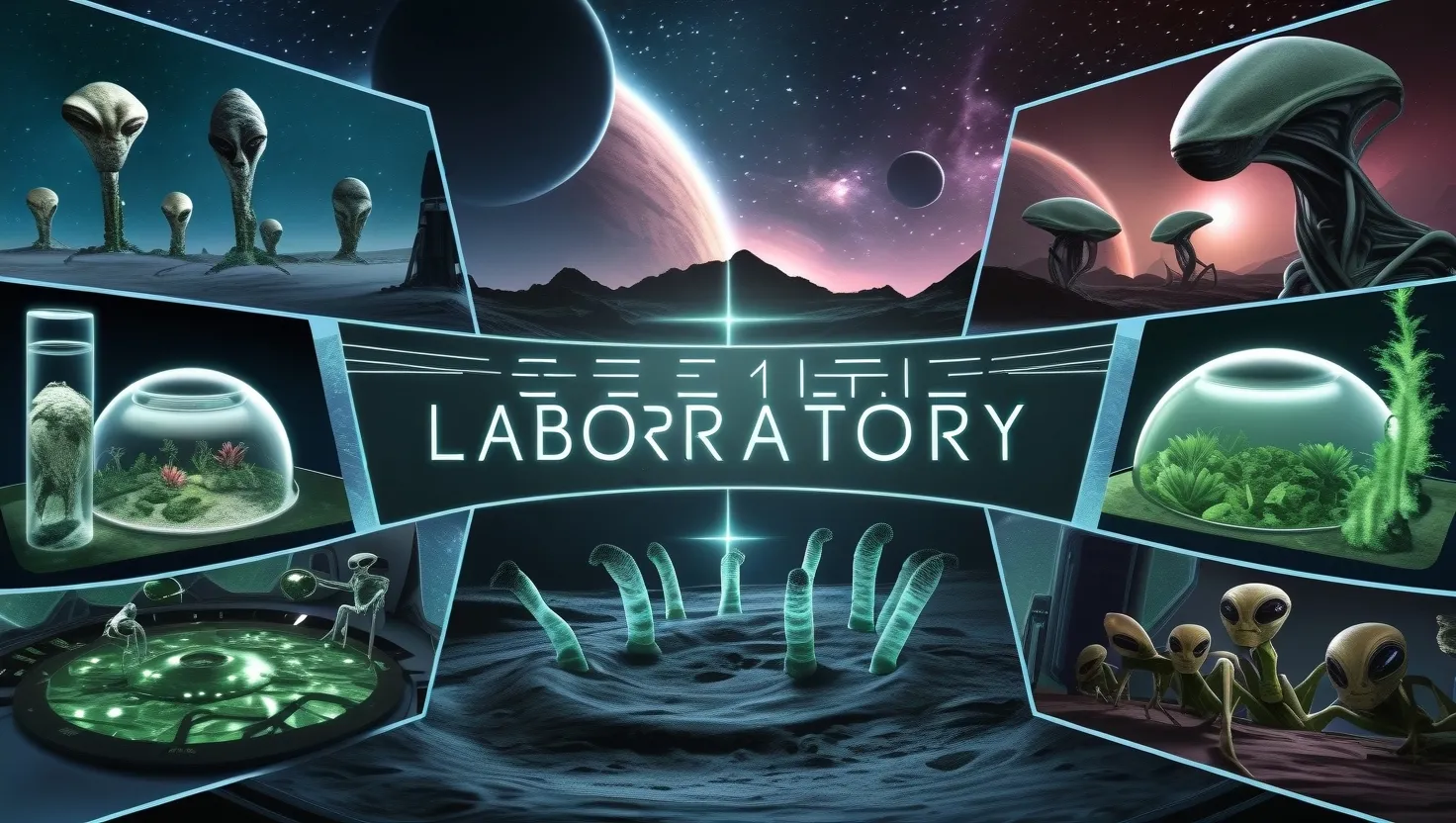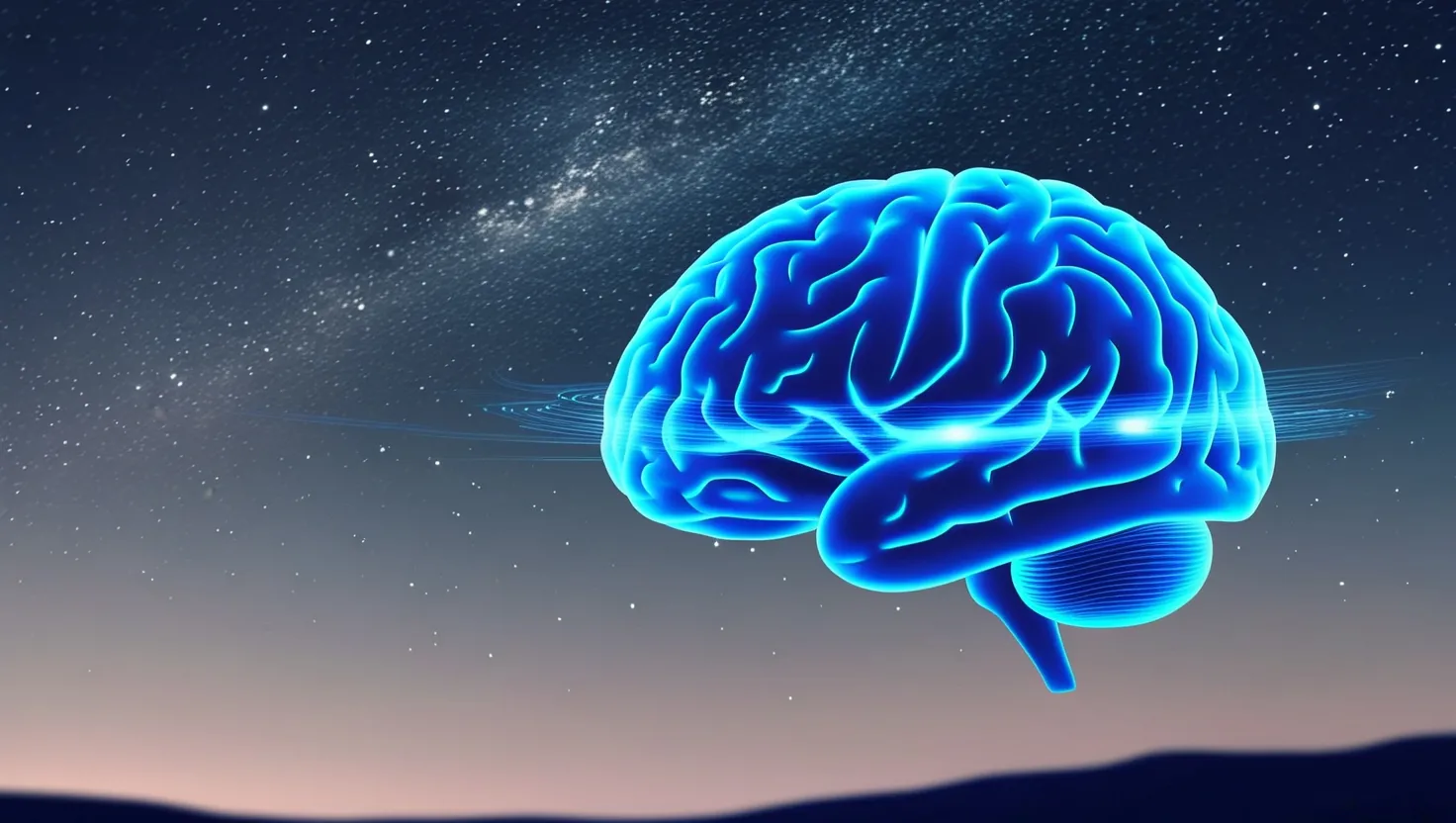Imagine a world where the tiny creatures in your gut are not just helping you digest your lunch, but are also tuning you into the hidden frequencies of the universe. This might sound like the stuff of science fiction, but some scientists are exploring a fascinating theory that suggests our gut bacteria could be more than just digestive aids – they might be quantum antennas connecting us to the cosmos.
To delve into this bizarre and intriguing world, let’s start with the basics. Our gut microbiome is a complex ecosystem of bacteria, fungi, and other microorganisms that live in our intestines. These microbes play a crucial role in our health, influencing everything from our digestion and immune system to our mood and even our cognitive functions. But what if their influence extends far beyond our bodies?
Recent studies have shown that certain bacteria can exploit quantum mechanics to survive and thrive. For instance, green sulfur bacteria use quantum effects to protect themselves from oxygen damage, which is crucial for their photosynthetic processes. This ability to harness quantum mechanics raises an interesting question: could other bacteria in our gut be doing something similar?
The concept of quantum mechanics in biological systems is not new, but its application to the gut microbiome is a relatively unexplored territory. Researchers at the University of Chicago discovered that certain bacteria can actively exploit quantum effects to minimize damage from oxygen, a finding that challenges the traditional view of biology as merely a consequence of molecular interactions. This suggests that these microorganisms might be capable of more complex interactions than we previously thought.
Now, let’s take a leap into the more speculative realm. What if our gut bacteria are not just passive inhabitants of our intestines but are actively influencing our connection to the world around us? The idea that our gut could be a quantum processor, with our intestines calling the shots in a grand cosmic scheme, sounds far-fetched, but it’s an idea that some scientists are beginning to explore.
In the context of quantum computing and machine learning, researchers are already using advanced techniques to analyze complex microbiome data. For example, a collaboration between Terra Quantum and Unilever aims to use quantum machine learning to understand the skin microbiome better. This project leverages the power of quantum computation to draw deeper insights from limited data, which could potentially transform our understanding of skin health and biology.
Similarly, at Keio University’s Human Biology-Microbiome-Quantum Research Center (Bio2Q), scientists are integrating biology, microbiome research, and quantum computing to understand human health at a molecular level. They are developing novel research techniques to analyze the interactions between multiple organs and the microbiome, using quantum computing to process the complex data generated by these interactions.
But how could this relate to the idea of our gut bacteria being quantum antennas? One way to think about it is through the concept of “gut feelings.” We often talk about having a gut feeling about something, but what if this is more than just a metaphor? What if our gut bacteria are actually influencing our intuition and decision-making processes through some form of quantum communication?
This idea might seem like a stretch, but there are some interesting observations that could support it. For instance, studies on meditation and its effects on the gut microbiome have shown that changes in the gut can correlate with changes in mental and physical health. Dr. Joe Dispenza’s QUANTUM study, which involved nearly a thousand participants, found that meditation could significantly impact the gut microbiome, leading to improvements in health and even in cancer patients.
While these findings are compelling, they still don’t directly prove that our gut bacteria are acting as quantum antennas. However, they do suggest that there is a deep and complex relationship between our microbiome and our overall health, which could be influenced by quantum mechanics.
To further explore this idea, we need to consider the concept of quantum non-destructive imaging. Researchers at Stanford University are developing quantum-information-optimal multi-pass imaging technologies that can image biological samples without damaging them. This technology relies on the coherent interaction of photons with the sample, which could potentially be applied to studying the interactions between gut bacteria and their environment.
Imagine if we could use such technologies to observe the behavior of gut bacteria in real-time, potentially uncovering patterns that suggest a form of quantum communication. This could be the key to understanding how our gut microbiome influences our health and possibly even our connection to the world around us.
In conclusion, while the idea of our gut bacteria being quantum antennas tuning us into the universe’s hidden frequencies is still highly speculative, it is an intriguing area of research that could lead to groundbreaking discoveries. As scientists continue to explore the complex interactions between our microbiome and our health, we may uncover secrets that challenge our current understanding of biology and the cosmos.
So, the next time you feel that gut feeling, remember that it might not just be your stomach talking – it could be the universe whispering through the tiny critters in your belly. The frontier of quantum microbiome research is vast and uncharted, and it’s an area that promises to reveal some of the most profound mysteries of our existence.






